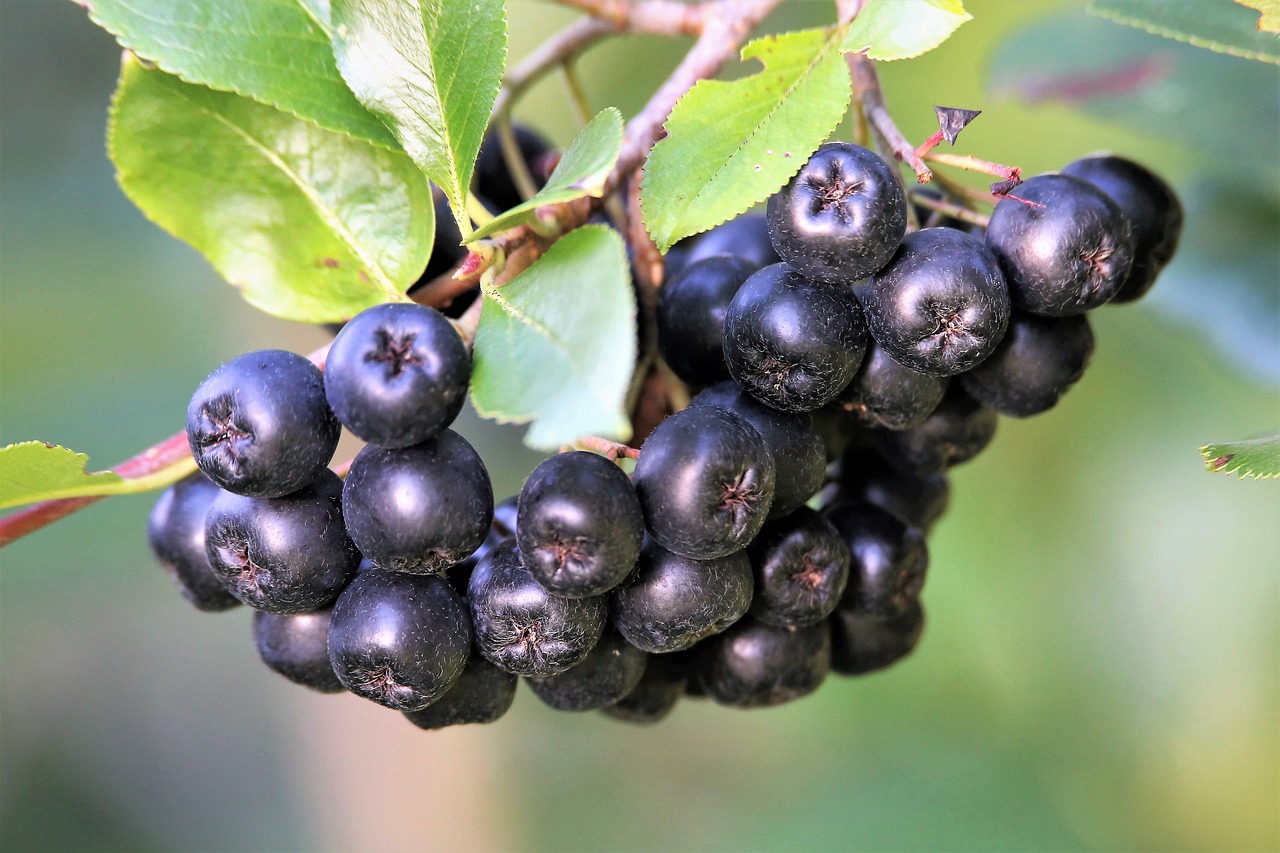Aronia has an unusually high content of antioxidants, vitamins, as well as other nutrients and benefits for improving general health. In order for you to fully understand the potential and importance of aronia in maintaining health, we are transmitting the entire medical text from the Medical News Today portal.
Aronia is a type of shrub originally from North America that is now cultivated in Eastern Europe. "Aronia" generally refers to the berries that grow on the bush.
These aronia berries are also known as aronias because of their sharp mouth-drying effect. Aronia can be eaten fresh or used as an ingredient in foods, such as pies, juices and tea.
These berries are said to have many health benefits, including anti-cancer properties. Many of chokeberry's proposed health benefits are linked to its high content of nutrients called polyphenols.
In a 2015 article on the portal Food Technology & Biotechnology it is stated that previous research revealed chokeberry to have the highest polyphenol content of the 143 plants analyzed. This article discussed some of the possible health benefits of chokeberry, along with the evidence for them. Also, their nutritional content and how they can be included in the diet was examined.

Possible health benefits of aronia
Anti-cancer effects
Scientific study from 2004 looked at the effects of grape, chokeberry and blueberry extracts in preventing the growth of colon cancer. The study found that all extracts inhibited (reduced) the growth of cancer cells, with aronia having the strongest effect.
Scientific study from 2009 found that chokeberry extract helps reduce cell damage associated with breast cancer. The authors of the study concluded that chokeberry extract has been shown to have protective effects in people suffering from breast cancer.
Antidiabetic effects
Research seems to support the anti-diabetic effects of chokeberry. Scientific study from 2015 found in rats that chokeberry extract helped boost the immune system and reduce diabetes-related inflammation.
A 2012 study, who looked at insulin-resistant rats, found that chokeberry extract fights insulin resistance on several levels. This result potentially makes it an effective aid in preventing the development of diabetes.
A 2016 study showed that aronia has a positive effect on blood glucose levels and obesity.
Organ health
Scientific study from 2016 studied the effects of chokeberry fruit juice in rats with liver damage. Researchers found that the juice reduced weight and symptoms of liver damage.
A similar study from 2017, also found that chokeberry juice had protective effects against liver damage in rats. The authors of the study suggest that the effect could be due to the antioxidant activity of chokeberry.
Another 2017 rodent study, found that chokeberry juice helped reduce the severity of symptoms in rats with damaged stomach lining. The study suggested that, in this case, chokeberry's benefits could be due to its increased mucus production, as well as its ability to fight oxidative stress.
Artery and blood vessel health
Scientific study from 2015 showed that aronia can protect against coronary artery disease. Aronia was thought to protect against plaque that develops inside the arteries. Both aronia and blueberry extracts helped to relax the tissue, which allows for better blood flow. This is important because many cardiovascular diseases lead to hardening of the arteries and a reduced ability of the blood vessels to relax. It can also mean that blood pressure drops. Of the three extracts tested, aronia had the most powerful effect. The researchers concluded that the extracts could have significant benefits in the treatment of vascular diseases.
A 2013 study supported these findings. Researchers have found that chokeberry is effective in lowering blood pressure and can help fight high blood pressure in the arteries.
Nutritional information
Aronia's specific nutrient balance will vary depending on how it was grown and prepared, as noted in an analysis on the Thieme website, entitled "Chokeberry (Aronia melanocarpa) - A Review on the Characteristic Components and Potential Health Effects". This analysis lists some of the most important factors, such as: the date of harvest and the place where the berries are grown. Like other berries, chokeberry is known for being rich in nutrients. Some of the nutritional details suggested in the review include the following:
vitamins
- vitamin C: 137-270 milligrams per kilogram (mg/kg)
- folic acid: 200 micrograms per kilogram (mg/kg)
- vitamin B-1: 180 mg/kg
- vitamin B-2: 200 mg/kg
- vitamin B-6: 280 mg/kg
- niacin: 3.000 mg/kg
- pantothenic acid: 2.790 mg/kg
- tocopherols: 17,1 mg/kg
- vitamin K: 242 mg/kg
Minerals
- sodium: 26 mg/kg
- potassium: 2,180 mg/kg
- calcium: 322 mg/kg
- magnesium: 162 mg/kg
- iron: 9,3 mg/kg
- zinc: 1,47 mg/kg
All weights are fresh berry weight.
How to include aronia in the diet
Aronia can be added to muffins, cookies and wine. Also, consume as juice. Aronia can be consumed as an ingredient in baked goods and other recipes or taken as an extract through various dietary supplements.
Foods and beverages in which aronia can be used include:
Possible risks and side effects
chokeberry, usually has the characteristic of "collecting", i.e. dries out the mouth. This may be uncomfortable for some people, but is unlikely to pose a health risk.
There does not appear to be well-documented evidence of specific risks or dangers associated with eating aronia, although some people may be allergic to aronia.
CONCLUSION
Aronia is a nutrient-dense food, containing a wide range of vitamins and minerals, including zinc, magnesium, iron and vitamins C, B and K.
Specific nutrient values will vary depending on how aronia is grown and prepared, so each brand should be examined individually.
Research suggests that aronia can have significant health benefits in terms of fighting the growth of certain cancers and associated damage to the body.
Aronia also appears to have significant positive effects in terms of insulin and improving immune function. These effects may be especially valuable for people with diabetes or prediabetes.
Scientists and researchers believe that aronia berries may have protective effects on the liver, as well as help reduce the symptoms and damage associated with stomach disorders.
Finally, chokeberry appears to be effective in lowering blood pressure and relaxing blood vessels. Some researchers suggest that it could be a useful tool in the treatment of vascular diseases.
There does not appear to be well-documented evidence of health risks associated with chokeberry, although dry mouth is a common side effect of consumption that may be uncomfortable for some.
ARONIA RECIPES
Baklava with aronia
VIDEO RECIPE - how to make baklava with chokeberry
Source: https://www.medicalnewstoday.com/articles/320610#risks-and-side-effects (Medically reviewed by Debra Rose Wilson, Ph.D., MSN, RN, IBCLC, AHN-BC, CHT — By Dan Wessels on January 13, 2018)
READ: WHERE CAN I BUY THE BOOK TRADITIONAL RECIPES OF HOME SERBIAN CUISINE?
Read more:
The Recipes and Kuvar online portal is ranked among the TOP 50 websites in Serbia!
Don't miss a recipe - Recipes and cookbook online on Facebook. Stay tuned, follow the Recipes and Cookbook twitter notifications!








